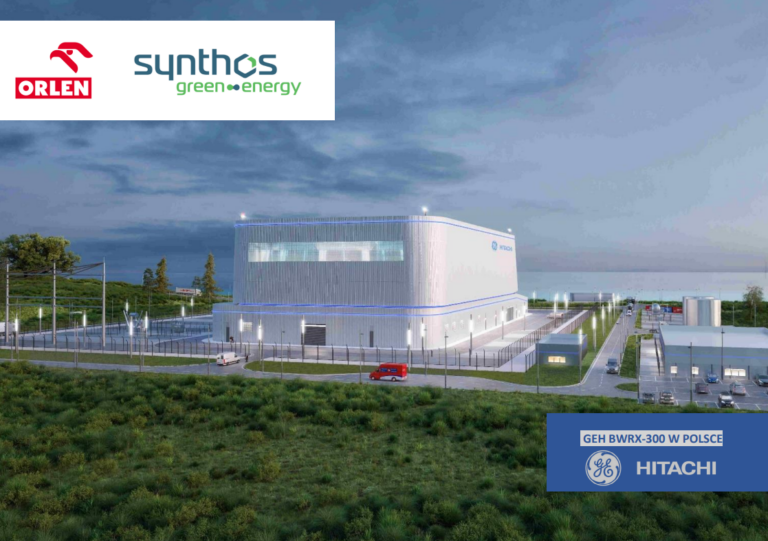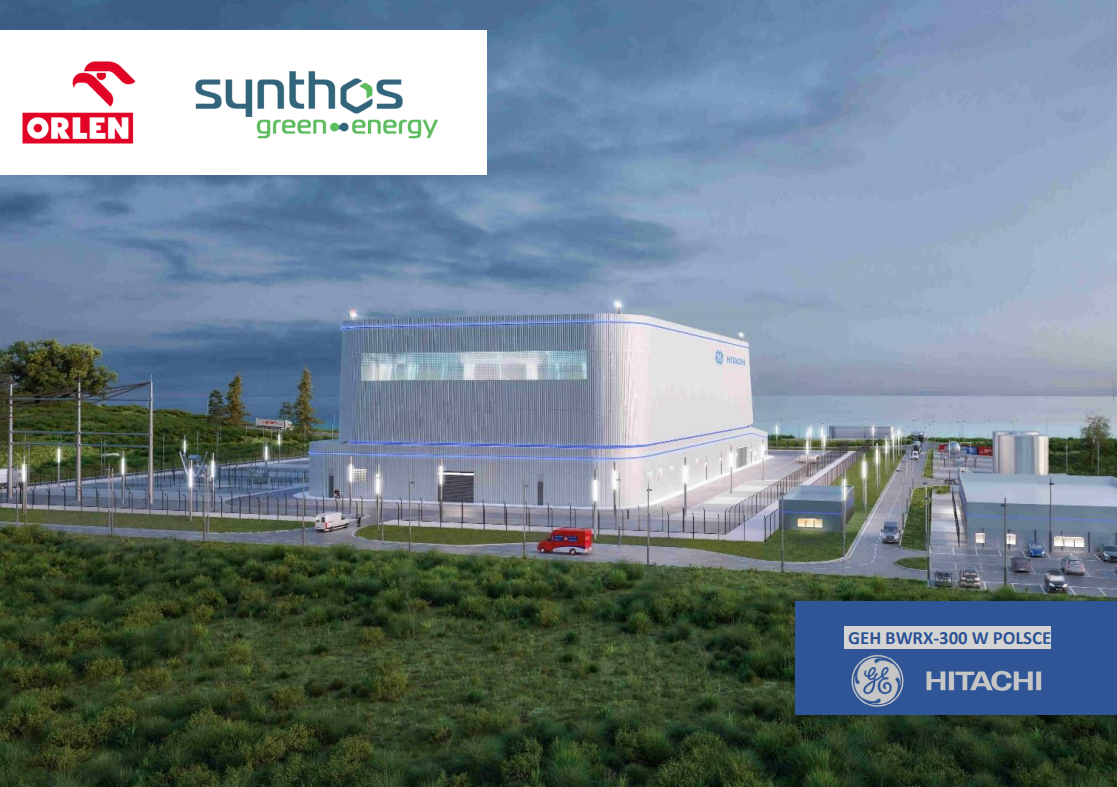
 Polish copper producer KGHM Polska Miedz and Orlen Synthos Green Energy have both submitted applications to Panstwowej Agencji Atomistyki (PAA – the National Atomic Energy Agency) for assessments of small modular reactor (SMR) technology. KGHM’s application relates to NuScale’s VOYGR SMR power plant, while Orlen’s concerns GE Hitachi Nuclear Energy’s BWRX-300, both US designs.
Polish copper producer KGHM Polska Miedz and Orlen Synthos Green Energy have both submitted applications to Panstwowej Agencji Atomistyki (PAA – the National Atomic Energy Agency) for assessments of small modular reactor (SMR) technology. KGHM’s application relates to NuScale’s VOYGR SMR power plant, while Orlen’s concerns GE Hitachi Nuclear Energy’s BWRX-300, both US designs.
The president of KGHM Polska Miedz, Marcin Chludzinski, announced on 8 July that the company had submitted an application to the PAA for an assessment of the SMR technology that it wants to implement. The estimated cost of building the NuScale power plant with infrastructure is expected to be from $1.5-2 billion. The contract was signed in February this year, and KGHM announced that it would launch the first reactors by 2029. The energy from the first SMR power plant is to be supplied to the production divisions of KGHM.
PAA said this was the first application it had received on SMR technology submitted to the National Atomic Energy Agency. KGHM had submitted an application for a general opinion on the planned organisational and technical solutions used in the NuScale reactor.
The Nuscale plant is a small water-pressure modular reactor with a net capacity per module of 50 MWe. Depending on the design version one NPP can comprise four, six or 12 modules. In January 2017, NuScale applied for project certification to the US Nuclear Regulatory Commission (NRC). The first initial safety assessment was completed by NRC in 2018 and in August 2020, NuScale received safety certification.
PAA said its opinion should aim at determining whether the planned organisational and technical solutions comply with the requirements of nuclear safety and radiological protection resulting from the provisions of the law, or whether the investor should make appropriate modifications.
In February KGHM signed a definitive agreement with NuScale to initiate work towards deploying a first NuScale VOYGR SMR power plant in Poland as early as 2029. The first task under that agreement will identify potential project sites and develop project planning milestones and cost estimates. Chludzinski said the next step will be to prepare a localisation study. He noted that work is already under way to launch a Test Control Centre in Poland. Operators and nuclear energy specialists will be trained there.”
The same day, Orlen Synthos Green Energy – a joint venture between chemical producers Synthos Green Energy (SGE) and PKN Orlen – applied to PAA for a general opinion on BWRX-300 SMR technology. PAA said its experts will check whether the submitted organisational and technical documentation complies with the requirements of nuclear safety and radiological protection resulting from the provisions of the law.
The BWRX-300 with a design capacity of 300MWe is a new generation boiling-type reactor. Currently, the BWRX-300 reactor design is undergoing a safety review by US NRC in the Topical Reports (Topical Reports) process and the Canadian Nuclear Safety Commission in the VDR (Vendor Design Review) process.
In December 2021, GE Hitachi, BWXT Canada and SGE signed a Letter of Intent to cooperate in deploying BWRX-300 SMRs in Poland. SGE, together with its partners, aim to deploy the first BWRX-300 in 2029 and to have at least 10 of the reactors in operation by the early 2030s.
Orlen argues that small nuclear reactors are an opportunity for the national economy. “Almost 300 Polish companies have already been identified that have the potential to become part of the supply chain in the construction of these reactors” Orlen noted. In both cases, the PAA President has six months to issue an opinion and this period may be extended to nine months in particularly complex cases.
The technical documentation submitted with its application is based on the documentation prepared by the technology supplier for the Canadian nuclear regulator as part of the Vendor Design Review process, Orlen Synthos Green Energy noted.